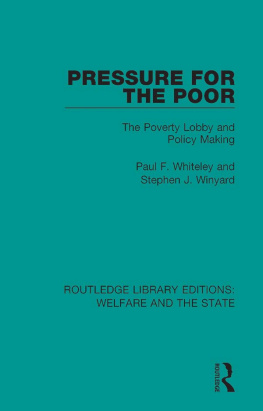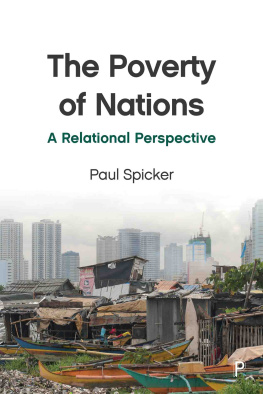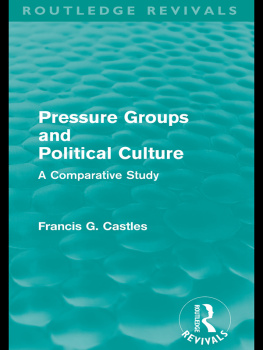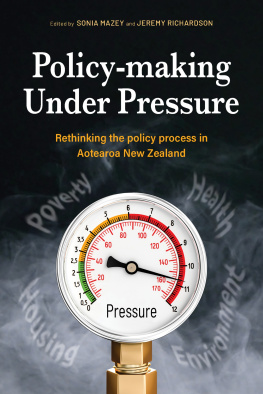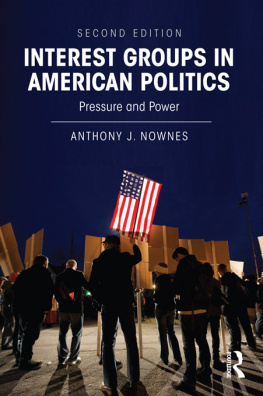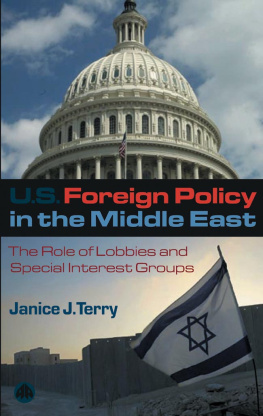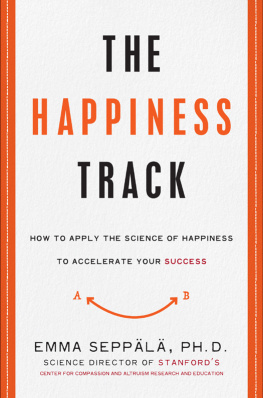First published in 1987 by Metheun & Co.
This edition first published in 2019
by Routledge
2 Park Square, Milton Park, Abingdon, Oxon OX14 4RN
and by Routledge
711 Third Avenue, New York, NY 10017
Routledge is an imprint of the Taylor & Francis Group, an informa business
1987 Paul F. Whiteley and Stephen J. Winyard
All rights reserved. No part of this book may be reprinted or reproduced or utilised in any form or by any electronic, mechanical, or other means, now known or hereafter invented, including photocopying and recording, or in any information storage or retrieval system, without permission in writing from the publishers.
Trademark notice: Product or corporate names may be trademarks or registered trademarks, and are used only for identification and explanation without intent to infringe.
British Library Cataloguing in Publication Data
A catalogue record for this book is available from the British Library
ISBN: 978-1-138-61373-7 (Set)
ISBN: 978-0-429-45813-2 (Set) (ebk)
ISBN: 978-1-138-60880-1 (Volume 24) (hbk)
ISBN: 978-0-429-46642-7 (Volume 24) (ebk)
Publishers Note
The publisher has gone to great lengths to ensure the quality of this reprint but points out that some imperfections in the original copies may be apparent.
Disclaimer
The publisher has made every effort to trace copyright holders and would welcome correspondence from those they have been unable to trace.
PAUL F. WHITELEY
STEPHEN J. WINYARD
PRESSURE FOR THE POOR
The poverty lobby and policy making
Methuen
London and New York
First published in 1987 by
Methuen & Co. Ltd
11 New Fetter Lane, London EC4P 4EE
Published in the USA by
Methuen & Co.
in association with Methuen, Inc.
29 West 35th Street, New York, NY 10001
1987 Paul F. Whiteley and Stephen J. Winyard
All rights reserved. No part of this book may be reprinted or reproduced or utilized in any form or by any electronic, mechanical or other means, now known or hereafter invented, including photocopying and recording, or in any information storage or retrieval system, without permission in writing from the publishers.
British Library Cataloguing in Publication Data
Whiteley, Paul F.
Pressure for the poor: the poverty lobby
and policy making.
1. Poor Great Britain Political
aspects
I. Title II. Winyard, Stephen J.
305.5690941 HC260.P6
ISBN 0-416-36370-9
Library of Congress Cataloguing in Publication Data
Whiteley, Paul F.
Pressure for the poor:
Bibliography: p.
Includes index.
1. Economic assistance, Domestic Great Britain Citizen participation. 2. Pressure groups Great Britain. 3. Social security Great Britain. 4. Great Britain Politics and government 1979
1. Winyard, Stephen J. II. Title.
HC260.P63W47 1987 362.580941 8711205
ISBN 0-416-36370-9
Stephen Winyard is indebted to a number of friends for their advice and comments, in particular Alan Deacon, Chris Pond and Adrian Sinfield. He is also grateful for the stimulus provided by association with the Low Pay Unit over many years.
Paul Whiteley is grateful to the Department of Political Science, Virginia Polytechnic and State University, particularly the Chairman Harold Clarke, for providing a congenial environment to work in during the course of drafting this book.
We would like to thank the Nuffield Foundation for a grant which enabled us to carry out the fieldwork for this study.
We are also grateful to Leisel Carter and Anne Dempsey for typing the manuscript.
Finally we are both grateful to Sue Whiteley and Rosie Winyard for their help, encouragement and patience while we were writing this book.
is reproduced courtesy of the Gower Publishing Group.
Poverty in Britain was rediscovered as a political issue in the mid-1960s. A series of reports and surveys shattered the widely held belief that the post-war welfare state had abolished want. Central to this process was the work of a number of newly established pressure groups, in particular the Child Poverty Action Group (CPAG), Disablement Income Group (DIG) and Shelter. They used the media to push the evidence of poverty before the public and the government. Their initial campaigning was highly effective and the Labour government, sensitive to the issue, committed itself to urgent action. The new high profile lobbying style of these groups, together with a relatively favourable political, economic and social environment, stimulated a rapid growth in the number of pressure groups concerned with poverty. Seventeen new groups were established in the period 196575, and they were joined by many of the long established repectable social welfare organizations which started to exert pressure on the issue; together these groups comprise the poverty lobby.
It is arguably one of the most important lobbies in British politics for three reasons. First, income maintenance is by far the largest area of public expenditure. In 19834 social security accounted for just under 30 per cent of total government spending; successes for the poverty lobby are thus potentially very large. Second, with well over three million members it is far bigger than any trade union or political party. It grew rapidly in the late 1960s and 1970s and achieved some spectacular success, although under the Thatcher governments it has faced an increasingly hostile environment. Third, the problem of poverty is a massive one and cannot be ignored by any government. In 1983, shortly before the Conservatives embarked upon a fundamental examination of the social security system, just under 9 million people in Britain were living on or below the state poverty line, one in six of the total population (DHSS, 1986).

